Malawi’s wildlife success story
It’s a rare day that a country in Africa gets to boast about its conservation success stories and certainly not significant and major ones – but Malawi’s recent story is one that can be celebrated! Since the coalition between African Parks and the Malawi government’s Department of National Parks and Wildlife, Malawi’s wildlife has gone from strength to strength, and has subsequently benefited the local communities around the parks as well as the economy as a whole.
African Parks have put a strong emphasis on educating and involving local communities when they implement new projects in order to have the support from them in their efforts. When they first came to Malawi, in some of the parks, much of the wildlife had been poached and was almost wiped out. Finding more snare wires than animals in Liwonde, the task at hand was not an easy one. With education on overfishing and poaching, as well as job creation, African Parks were able to work hand in hand with Malawians to create what is fast becoming a very exciting and bright future ahead of us!
 You may have already read about the 500 Elephants Project where they translocated 500 elephants from the southern parks of Liwonde and Majete, all the way up to Nkhotakota in the central region of Malawi – but the efforts haven’t stopped there. From the seven cheetahs that came to Liwonde 2 years ago who have bred to an incredible 18, to the success of the black rhino repopulation.
Did you know there hasn’t been a rhino poached in Majete Wildlife Reserve for over 15 years? This reputation may also have led to the 24 black rhinos that recently arrived from Zimbabwe into Liwonde for safekeeping. With the fencing of the parks, some high-tech anti-poaching technology, as well as a rapid response team and some good old fashioned manpower, these parks and their four legged residents are in good hands.
You may have already read about the 500 Elephants Project where they translocated 500 elephants from the southern parks of Liwonde and Majete, all the way up to Nkhotakota in the central region of Malawi – but the efforts haven’t stopped there. From the seven cheetahs that came to Liwonde 2 years ago who have bred to an incredible 18, to the success of the black rhino repopulation.
Did you know there hasn’t been a rhino poached in Majete Wildlife Reserve for over 15 years? This reputation may also have led to the 24 black rhinos that recently arrived from Zimbabwe into Liwonde for safekeeping. With the fencing of the parks, some high-tech anti-poaching technology, as well as a rapid response team and some good old fashioned manpower, these parks and their four legged residents are in good hands.
 So, it’s all good news for conservation, but what will you see on safari? Malawi is home to the Big 5 so you’ll have the opportunity to see those headline-grabbers along with lots of other species as well – from endless birds including some extremely rare ‘lifers’ (Did you know the African Pitta has recently nested on one of the islands on the lake?! Yes, the Pitta!), to hippos and crocs galore, giraffes, zebras, a whole host of unusual antelope, porcupines, hyenas, jackals, civets, otters and even some serval and pangolin too! From the large to the tiny, from birds to reptiles, mammals and endemic fish, it is the ultimate off-the-beaten-track safari for those looking for something a bit unusual, away from the crowds.
With 9 national parks and wildlife reserves spanning the full length of the country, including one covering some of the waters of Lake Malawi there is a variety of landscapes and habitats to suit this vast spread of species. The beauty of each, is that there are only two, or maximum three, lodges within so you will not be bumping into more people than wildlife or fighting for a view of a sighting. Malawi’s main parks for wildlife viewing are now Majete, Liwonde, Nkhotakota and Nyika.
So, it’s all good news for conservation, but what will you see on safari? Malawi is home to the Big 5 so you’ll have the opportunity to see those headline-grabbers along with lots of other species as well – from endless birds including some extremely rare ‘lifers’ (Did you know the African Pitta has recently nested on one of the islands on the lake?! Yes, the Pitta!), to hippos and crocs galore, giraffes, zebras, a whole host of unusual antelope, porcupines, hyenas, jackals, civets, otters and even some serval and pangolin too! From the large to the tiny, from birds to reptiles, mammals and endemic fish, it is the ultimate off-the-beaten-track safari for those looking for something a bit unusual, away from the crowds.
With 9 national parks and wildlife reserves spanning the full length of the country, including one covering some of the waters of Lake Malawi there is a variety of landscapes and habitats to suit this vast spread of species. The beauty of each, is that there are only two, or maximum three, lodges within so you will not be bumping into more people than wildlife or fighting for a view of a sighting. Malawi’s main parks for wildlife viewing are now Majete, Liwonde, Nkhotakota and Nyika.
 Majete Wildlife Reserve
One of the first parks that African Parks took over, Majete, became the first to secure the Big 5 in Malawi. With a thick woodland and flowing river, it was the perfect place for the elusive leopard to hide and the black rhino to thrive! Elephants have enjoyed feasting on the trees and thus far there are only 2 lodges within the park. Just a 2-hour drive from Blantyre and their international airport, it is a good start on a tour of Malawi’s parks – but the wildlife can be harder to see in this dense bush than in the open areas of Liwonde so try to avoid the rainy season when it’s thick with foliage. However, if you aren’t looking to tick off the Big 5 in one day and are up for a tracking thrill, this is a beautiful area to start. Malawi is well known for its numerous birds thanks to the expansive range of habitats in a relatively small area and the water sources provide for the plenty of water birds here. Majete is the perfect spot for twitchers and those who prefer the big game to come together!
Majete Wildlife Reserve
One of the first parks that African Parks took over, Majete, became the first to secure the Big 5 in Malawi. With a thick woodland and flowing river, it was the perfect place for the elusive leopard to hide and the black rhino to thrive! Elephants have enjoyed feasting on the trees and thus far there are only 2 lodges within the park. Just a 2-hour drive from Blantyre and their international airport, it is a good start on a tour of Malawi’s parks – but the wildlife can be harder to see in this dense bush than in the open areas of Liwonde so try to avoid the rainy season when it’s thick with foliage. However, if you aren’t looking to tick off the Big 5 in one day and are up for a tracking thrill, this is a beautiful area to start. Malawi is well known for its numerous birds thanks to the expansive range of habitats in a relatively small area and the water sources provide for the plenty of water birds here. Majete is the perfect spot for twitchers and those who prefer the big game to come together!
 Liwonde National Park
Also set around the Shire River, this is one of Malawi’s leading parks. Liwonde currently only has 3 lodges within it, each of which is based on the river. They have each played a part in the success the park has had with the animals and they’ve formed a strong coalition with the surrounding communities.The Shire River has one of the biggest populations of crocodiles and forms a natural boundary to the park. Previously rife with over-fishing as well as bushmeat poaching, that has all changed now. Whilst fishing is still allowed on the river outside the park, the fish within the park boundaries only have the crocodiles to worry about!
Liwonde National Park
Also set around the Shire River, this is one of Malawi’s leading parks. Liwonde currently only has 3 lodges within it, each of which is based on the river. They have each played a part in the success the park has had with the animals and they’ve formed a strong coalition with the surrounding communities.The Shire River has one of the biggest populations of crocodiles and forms a natural boundary to the park. Previously rife with over-fishing as well as bushmeat poaching, that has all changed now. Whilst fishing is still allowed on the river outside the park, the fish within the park boundaries only have the crocodiles to worry about!
 With an absence of predators in the park for so long it was one of the few places you could see a warthog with grey hair! It was an unusual and somewhat comical return when the cheetahs and lions were reintroduced and the plains game just sat and looked at them, quite curious as to what these fluffy cat-things were! But it didn’t take long for them to learn just who to avoid and why. The cheetahs, often with full bellies, created and left an abundance of half-eaten carcasses around the park, and so returned the hyena and the vultures who had long since disappeared into the cities and townships. Whilst this may seem a little cruel, the circle of life plays such an important part in the ecosystem and means that the animals that are there are naturally selected for strong and resilient characteristics and are less likely to die of starvation or disease. The cheetah, who had been enjoying an all-you-can eat buffet, also had to learn quickly when the lions were later reintroduced – and so the cycle continues. It is here that the black rhinos are thriving with their current population joined by some more from Zimbabwe. Before African Parks came along, some of Malawi’s own conservationists, including one of the lodge owners, had been keeping a close watch on the rhino and their breeding for many years before; which just goes to show that Malawi was ready for a helping hand and certainly wanted to be part of the bigger picture.
With an absence of predators in the park for so long it was one of the few places you could see a warthog with grey hair! It was an unusual and somewhat comical return when the cheetahs and lions were reintroduced and the plains game just sat and looked at them, quite curious as to what these fluffy cat-things were! But it didn’t take long for them to learn just who to avoid and why. The cheetahs, often with full bellies, created and left an abundance of half-eaten carcasses around the park, and so returned the hyena and the vultures who had long since disappeared into the cities and townships. Whilst this may seem a little cruel, the circle of life plays such an important part in the ecosystem and means that the animals that are there are naturally selected for strong and resilient characteristics and are less likely to die of starvation or disease. The cheetah, who had been enjoying an all-you-can eat buffet, also had to learn quickly when the lions were later reintroduced – and so the cycle continues. It is here that the black rhinos are thriving with their current population joined by some more from Zimbabwe. Before African Parks came along, some of Malawi’s own conservationists, including one of the lodge owners, had been keeping a close watch on the rhino and their breeding for many years before; which just goes to show that Malawi was ready for a helping hand and certainly wanted to be part of the bigger picture.
 Nkhotakota Wildlife Reserve
This rich forest, also boasting a good river system, is an absolute haven for wildlife. Once the reserve was fenced, the elephants were moved up here and the plan is for more wildlife reintroductions in the future. It is another birders paradise and has plenty of plains game and even four rogue lions thought to have come through from Zambia. Again, with just 3 lodges within its expanse it is a true wilderness escape and nature retreat. Liwonde has had an international-standard lodge for over 30 years fighting hard to conserve the wildlife and environment even before African Parks took over management in 2015. And Majete has been under African Parks management for over 15 years now. With international lodges arriving in Nkhotakota only a few years before African Parks took over in 2015, this reserve is a little behind is sisters. But as a vast, stunningly beautiful and truly untouched wilderness, its future is now extremely bright as the wildlife settles in and the protection it now has allows nature to take its course!
Nkhotakota Wildlife Reserve
This rich forest, also boasting a good river system, is an absolute haven for wildlife. Once the reserve was fenced, the elephants were moved up here and the plan is for more wildlife reintroductions in the future. It is another birders paradise and has plenty of plains game and even four rogue lions thought to have come through from Zambia. Again, with just 3 lodges within its expanse it is a true wilderness escape and nature retreat. Liwonde has had an international-standard lodge for over 30 years fighting hard to conserve the wildlife and environment even before African Parks took over management in 2015. And Majete has been under African Parks management for over 15 years now. With international lodges arriving in Nkhotakota only a few years before African Parks took over in 2015, this reserve is a little behind is sisters. But as a vast, stunningly beautiful and truly untouched wilderness, its future is now extremely bright as the wildlife settles in and the protection it now has allows nature to take its course!
 Nyika National Park
Unlike the other three, Nyika is a highland reserve in the north of Malawi – a unique and beautiful expanse of rolling hills interspersed with woodlands and lakes. There is just one lodge within it, with rustic Alpine-esque log cabins, this whole place has a remote charm of unexplored lands and the spirit of the Scottish Highlands. Full of herds of zebra, eland, roan and many other antelope, as well as a thriving population of leopards, there is plenty of game to be seen here but it is the amazing scenery that people come for – plus a few holy grails on the birders’ lists, such as the bar-tailed trogon, It is hard to think this is just a few hours away from the other parks given its completely different landscape, but it just goes to show the extreme diversity of Malawi’s beauty.
Nyika National Park
Unlike the other three, Nyika is a highland reserve in the north of Malawi – a unique and beautiful expanse of rolling hills interspersed with woodlands and lakes. There is just one lodge within it, with rustic Alpine-esque log cabins, this whole place has a remote charm of unexplored lands and the spirit of the Scottish Highlands. Full of herds of zebra, eland, roan and many other antelope, as well as a thriving population of leopards, there is plenty of game to be seen here but it is the amazing scenery that people come for – plus a few holy grails on the birders’ lists, such as the bar-tailed trogon, It is hard to think this is just a few hours away from the other parks given its completely different landscape, but it just goes to show the extreme diversity of Malawi’s beauty.
 It’s good to have good news, so why not be part of it and come see for yourself? When the time is right, travel to Malawi to see the success but also contribute to it – from the park conservation fees you pay, to job opportunities tourism creates, it all plays a heavy hand in curating the success this small yet impactful country has seen. Malawi has a number of local operators who can organise tours around the country to visit some or all of these parks & reserves, combined with the country’s stunning landscapes, rich cultural interactions and, of course, the amazing beaches and waters of Lake Malawi. For example, one of the country’s most dynamic and innovative operators, Malawian Style has just launched a great new Malawi Highlights itinerary that includes the unique Nyika in the north, Liwonde in the south, the scenic tea estates and some Lake Malawi beach-time. A great opportunity to see something of Malawi’s amazing conservation success story, as part of a full-country experience
It’s good to have good news, so why not be part of it and come see for yourself? When the time is right, travel to Malawi to see the success but also contribute to it – from the park conservation fees you pay, to job opportunities tourism creates, it all plays a heavy hand in curating the success this small yet impactful country has seen. Malawi has a number of local operators who can organise tours around the country to visit some or all of these parks & reserves, combined with the country’s stunning landscapes, rich cultural interactions and, of course, the amazing beaches and waters of Lake Malawi. For example, one of the country’s most dynamic and innovative operators, Malawian Style has just launched a great new Malawi Highlights itinerary that includes the unique Nyika in the north, Liwonde in the south, the scenic tea estates and some Lake Malawi beach-time. A great opportunity to see something of Malawi’s amazing conservation success story, as part of a full-country experience
 Kelly White is Director of the Malawi Travel Marketing Consortium. Malawi Travel Marketing Consortium aims to provide you with the best information to make Malawi your tourism destination.
If you would like to be a guest blogger on A Luxury Travel Blog in order to raise your profile, please contact us.
Kelly White is Director of the Malawi Travel Marketing Consortium. Malawi Travel Marketing Consortium aims to provide you with the best information to make Malawi your tourism destination.
If you would like to be a guest blogger on A Luxury Travel Blog in order to raise your profile, please contact us.
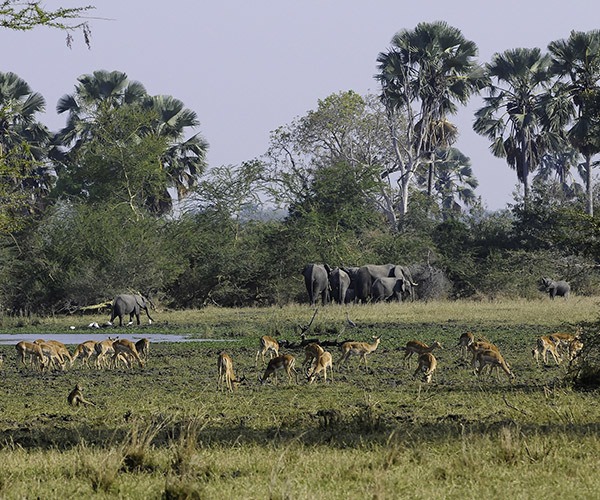 You may have already read about the 500 Elephants Project where they translocated 500 elephants from the southern parks of Liwonde and Majete, all the way up to Nkhotakota in the central region of Malawi – but the efforts haven’t stopped there. From the seven cheetahs that came to Liwonde 2 years ago who have bred to an incredible 18, to the success of the black rhino repopulation.
Did you know there hasn’t been a rhino poached in Majete Wildlife Reserve for over 15 years? This reputation may also have led to the 24 black rhinos that recently arrived from Zimbabwe into Liwonde for safekeeping. With the fencing of the parks, some high-tech anti-poaching technology, as well as a rapid response team and some good old fashioned manpower, these parks and their four legged residents are in good hands.
You may have already read about the 500 Elephants Project where they translocated 500 elephants from the southern parks of Liwonde and Majete, all the way up to Nkhotakota in the central region of Malawi – but the efforts haven’t stopped there. From the seven cheetahs that came to Liwonde 2 years ago who have bred to an incredible 18, to the success of the black rhino repopulation.
Did you know there hasn’t been a rhino poached in Majete Wildlife Reserve for over 15 years? This reputation may also have led to the 24 black rhinos that recently arrived from Zimbabwe into Liwonde for safekeeping. With the fencing of the parks, some high-tech anti-poaching technology, as well as a rapid response team and some good old fashioned manpower, these parks and their four legged residents are in good hands.
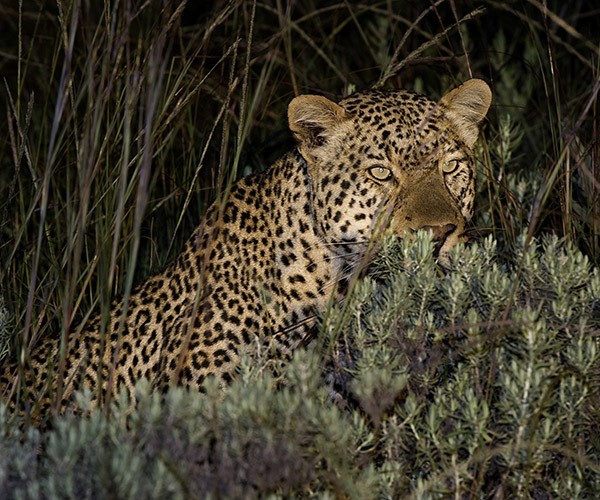 So, it’s all good news for conservation, but what will you see on safari? Malawi is home to the Big 5 so you’ll have the opportunity to see those headline-grabbers along with lots of other species as well – from endless birds including some extremely rare ‘lifers’ (Did you know the African Pitta has recently nested on one of the islands on the lake?! Yes, the Pitta!), to hippos and crocs galore, giraffes, zebras, a whole host of unusual antelope, porcupines, hyenas, jackals, civets, otters and even some serval and pangolin too! From the large to the tiny, from birds to reptiles, mammals and endemic fish, it is the ultimate off-the-beaten-track safari for those looking for something a bit unusual, away from the crowds.
With 9 national parks and wildlife reserves spanning the full length of the country, including one covering some of the waters of Lake Malawi there is a variety of landscapes and habitats to suit this vast spread of species. The beauty of each, is that there are only two, or maximum three, lodges within so you will not be bumping into more people than wildlife or fighting for a view of a sighting. Malawi’s main parks for wildlife viewing are now Majete, Liwonde, Nkhotakota and Nyika.
So, it’s all good news for conservation, but what will you see on safari? Malawi is home to the Big 5 so you’ll have the opportunity to see those headline-grabbers along with lots of other species as well – from endless birds including some extremely rare ‘lifers’ (Did you know the African Pitta has recently nested on one of the islands on the lake?! Yes, the Pitta!), to hippos and crocs galore, giraffes, zebras, a whole host of unusual antelope, porcupines, hyenas, jackals, civets, otters and even some serval and pangolin too! From the large to the tiny, from birds to reptiles, mammals and endemic fish, it is the ultimate off-the-beaten-track safari for those looking for something a bit unusual, away from the crowds.
With 9 national parks and wildlife reserves spanning the full length of the country, including one covering some of the waters of Lake Malawi there is a variety of landscapes and habitats to suit this vast spread of species. The beauty of each, is that there are only two, or maximum three, lodges within so you will not be bumping into more people than wildlife or fighting for a view of a sighting. Malawi’s main parks for wildlife viewing are now Majete, Liwonde, Nkhotakota and Nyika.
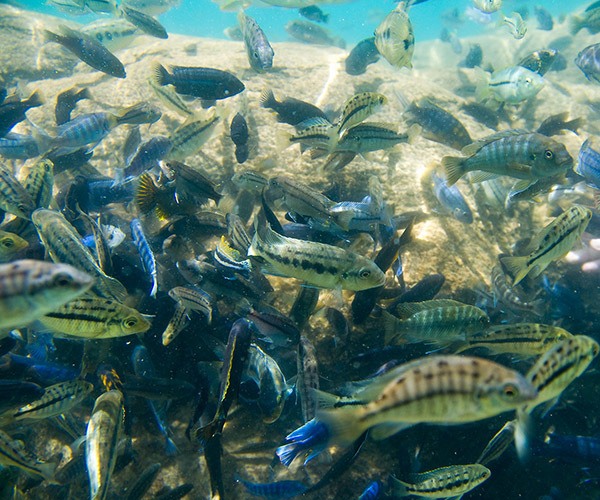 Majete Wildlife Reserve
One of the first parks that African Parks took over, Majete, became the first to secure the Big 5 in Malawi. With a thick woodland and flowing river, it was the perfect place for the elusive leopard to hide and the black rhino to thrive! Elephants have enjoyed feasting on the trees and thus far there are only 2 lodges within the park. Just a 2-hour drive from Blantyre and their international airport, it is a good start on a tour of Malawi’s parks – but the wildlife can be harder to see in this dense bush than in the open areas of Liwonde so try to avoid the rainy season when it’s thick with foliage. However, if you aren’t looking to tick off the Big 5 in one day and are up for a tracking thrill, this is a beautiful area to start. Malawi is well known for its numerous birds thanks to the expansive range of habitats in a relatively small area and the water sources provide for the plenty of water birds here. Majete is the perfect spot for twitchers and those who prefer the big game to come together!
Majete Wildlife Reserve
One of the first parks that African Parks took over, Majete, became the first to secure the Big 5 in Malawi. With a thick woodland and flowing river, it was the perfect place for the elusive leopard to hide and the black rhino to thrive! Elephants have enjoyed feasting on the trees and thus far there are only 2 lodges within the park. Just a 2-hour drive from Blantyre and their international airport, it is a good start on a tour of Malawi’s parks – but the wildlife can be harder to see in this dense bush than in the open areas of Liwonde so try to avoid the rainy season when it’s thick with foliage. However, if you aren’t looking to tick off the Big 5 in one day and are up for a tracking thrill, this is a beautiful area to start. Malawi is well known for its numerous birds thanks to the expansive range of habitats in a relatively small area and the water sources provide for the plenty of water birds here. Majete is the perfect spot for twitchers and those who prefer the big game to come together!
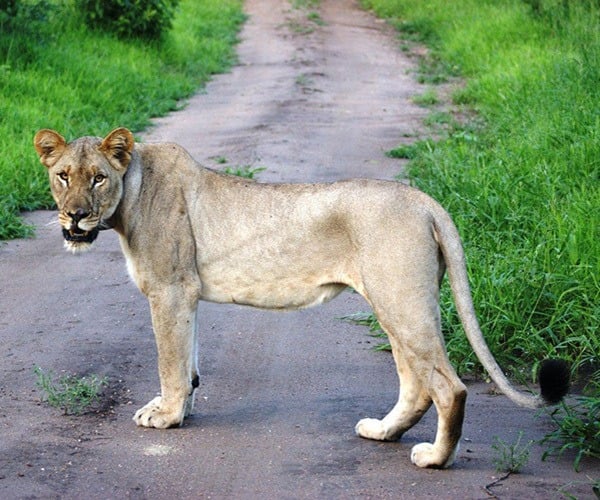 Liwonde National Park
Also set around the Shire River, this is one of Malawi’s leading parks. Liwonde currently only has 3 lodges within it, each of which is based on the river. They have each played a part in the success the park has had with the animals and they’ve formed a strong coalition with the surrounding communities.The Shire River has one of the biggest populations of crocodiles and forms a natural boundary to the park. Previously rife with over-fishing as well as bushmeat poaching, that has all changed now. Whilst fishing is still allowed on the river outside the park, the fish within the park boundaries only have the crocodiles to worry about!
Liwonde National Park
Also set around the Shire River, this is one of Malawi’s leading parks. Liwonde currently only has 3 lodges within it, each of which is based on the river. They have each played a part in the success the park has had with the animals and they’ve formed a strong coalition with the surrounding communities.The Shire River has one of the biggest populations of crocodiles and forms a natural boundary to the park. Previously rife with over-fishing as well as bushmeat poaching, that has all changed now. Whilst fishing is still allowed on the river outside the park, the fish within the park boundaries only have the crocodiles to worry about!
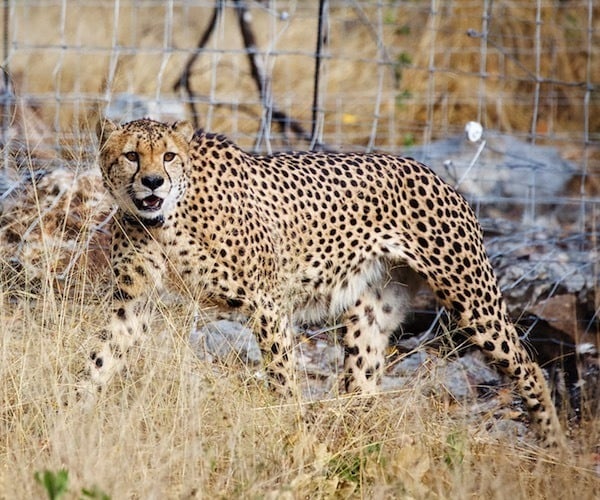 With an absence of predators in the park for so long it was one of the few places you could see a warthog with grey hair! It was an unusual and somewhat comical return when the cheetahs and lions were reintroduced and the plains game just sat and looked at them, quite curious as to what these fluffy cat-things were! But it didn’t take long for them to learn just who to avoid and why. The cheetahs, often with full bellies, created and left an abundance of half-eaten carcasses around the park, and so returned the hyena and the vultures who had long since disappeared into the cities and townships. Whilst this may seem a little cruel, the circle of life plays such an important part in the ecosystem and means that the animals that are there are naturally selected for strong and resilient characteristics and are less likely to die of starvation or disease. The cheetah, who had been enjoying an all-you-can eat buffet, also had to learn quickly when the lions were later reintroduced – and so the cycle continues. It is here that the black rhinos are thriving with their current population joined by some more from Zimbabwe. Before African Parks came along, some of Malawi’s own conservationists, including one of the lodge owners, had been keeping a close watch on the rhino and their breeding for many years before; which just goes to show that Malawi was ready for a helping hand and certainly wanted to be part of the bigger picture.
With an absence of predators in the park for so long it was one of the few places you could see a warthog with grey hair! It was an unusual and somewhat comical return when the cheetahs and lions were reintroduced and the plains game just sat and looked at them, quite curious as to what these fluffy cat-things were! But it didn’t take long for them to learn just who to avoid and why. The cheetahs, often with full bellies, created and left an abundance of half-eaten carcasses around the park, and so returned the hyena and the vultures who had long since disappeared into the cities and townships. Whilst this may seem a little cruel, the circle of life plays such an important part in the ecosystem and means that the animals that are there are naturally selected for strong and resilient characteristics and are less likely to die of starvation or disease. The cheetah, who had been enjoying an all-you-can eat buffet, also had to learn quickly when the lions were later reintroduced – and so the cycle continues. It is here that the black rhinos are thriving with their current population joined by some more from Zimbabwe. Before African Parks came along, some of Malawi’s own conservationists, including one of the lodge owners, had been keeping a close watch on the rhino and their breeding for many years before; which just goes to show that Malawi was ready for a helping hand and certainly wanted to be part of the bigger picture.
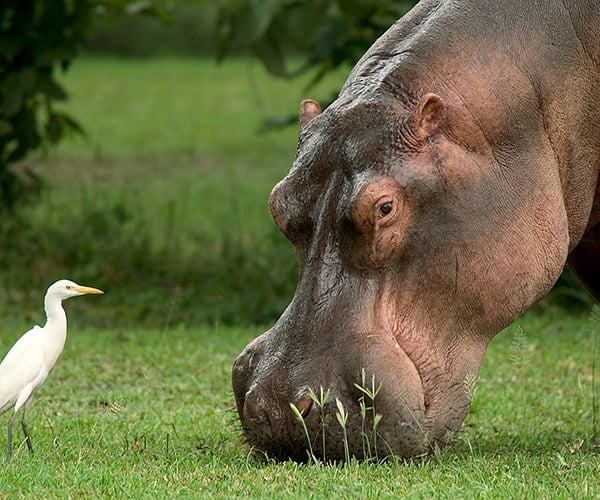 Nkhotakota Wildlife Reserve
This rich forest, also boasting a good river system, is an absolute haven for wildlife. Once the reserve was fenced, the elephants were moved up here and the plan is for more wildlife reintroductions in the future. It is another birders paradise and has plenty of plains game and even four rogue lions thought to have come through from Zambia. Again, with just 3 lodges within its expanse it is a true wilderness escape and nature retreat. Liwonde has had an international-standard lodge for over 30 years fighting hard to conserve the wildlife and environment even before African Parks took over management in 2015. And Majete has been under African Parks management for over 15 years now. With international lodges arriving in Nkhotakota only a few years before African Parks took over in 2015, this reserve is a little behind is sisters. But as a vast, stunningly beautiful and truly untouched wilderness, its future is now extremely bright as the wildlife settles in and the protection it now has allows nature to take its course!
Nkhotakota Wildlife Reserve
This rich forest, also boasting a good river system, is an absolute haven for wildlife. Once the reserve was fenced, the elephants were moved up here and the plan is for more wildlife reintroductions in the future. It is another birders paradise and has plenty of plains game and even four rogue lions thought to have come through from Zambia. Again, with just 3 lodges within its expanse it is a true wilderness escape and nature retreat. Liwonde has had an international-standard lodge for over 30 years fighting hard to conserve the wildlife and environment even before African Parks took over management in 2015. And Majete has been under African Parks management for over 15 years now. With international lodges arriving in Nkhotakota only a few years before African Parks took over in 2015, this reserve is a little behind is sisters. But as a vast, stunningly beautiful and truly untouched wilderness, its future is now extremely bright as the wildlife settles in and the protection it now has allows nature to take its course!
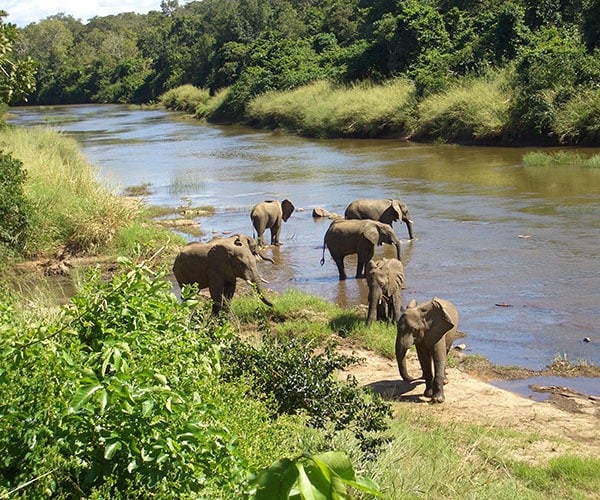 Nyika National Park
Unlike the other three, Nyika is a highland reserve in the north of Malawi – a unique and beautiful expanse of rolling hills interspersed with woodlands and lakes. There is just one lodge within it, with rustic Alpine-esque log cabins, this whole place has a remote charm of unexplored lands and the spirit of the Scottish Highlands. Full of herds of zebra, eland, roan and many other antelope, as well as a thriving population of leopards, there is plenty of game to be seen here but it is the amazing scenery that people come for – plus a few holy grails on the birders’ lists, such as the bar-tailed trogon, It is hard to think this is just a few hours away from the other parks given its completely different landscape, but it just goes to show the extreme diversity of Malawi’s beauty.
Nyika National Park
Unlike the other three, Nyika is a highland reserve in the north of Malawi – a unique and beautiful expanse of rolling hills interspersed with woodlands and lakes. There is just one lodge within it, with rustic Alpine-esque log cabins, this whole place has a remote charm of unexplored lands and the spirit of the Scottish Highlands. Full of herds of zebra, eland, roan and many other antelope, as well as a thriving population of leopards, there is plenty of game to be seen here but it is the amazing scenery that people come for – plus a few holy grails on the birders’ lists, such as the bar-tailed trogon, It is hard to think this is just a few hours away from the other parks given its completely different landscape, but it just goes to show the extreme diversity of Malawi’s beauty.
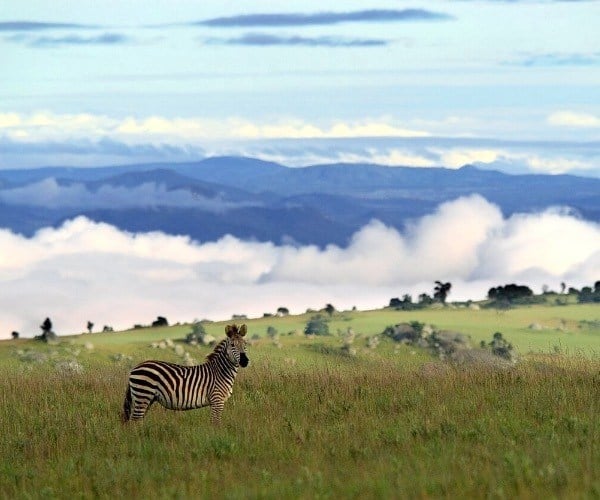 It’s good to have good news, so why not be part of it and come see for yourself? When the time is right, travel to Malawi to see the success but also contribute to it – from the park conservation fees you pay, to job opportunities tourism creates, it all plays a heavy hand in curating the success this small yet impactful country has seen. Malawi has a number of local operators who can organise tours around the country to visit some or all of these parks & reserves, combined with the country’s stunning landscapes, rich cultural interactions and, of course, the amazing beaches and waters of Lake Malawi. For example, one of the country’s most dynamic and innovative operators, Malawian Style has just launched a great new Malawi Highlights itinerary that includes the unique Nyika in the north, Liwonde in the south, the scenic tea estates and some Lake Malawi beach-time. A great opportunity to see something of Malawi’s amazing conservation success story, as part of a full-country experience
It’s good to have good news, so why not be part of it and come see for yourself? When the time is right, travel to Malawi to see the success but also contribute to it – from the park conservation fees you pay, to job opportunities tourism creates, it all plays a heavy hand in curating the success this small yet impactful country has seen. Malawi has a number of local operators who can organise tours around the country to visit some or all of these parks & reserves, combined with the country’s stunning landscapes, rich cultural interactions and, of course, the amazing beaches and waters of Lake Malawi. For example, one of the country’s most dynamic and innovative operators, Malawian Style has just launched a great new Malawi Highlights itinerary that includes the unique Nyika in the north, Liwonde in the south, the scenic tea estates and some Lake Malawi beach-time. A great opportunity to see something of Malawi’s amazing conservation success story, as part of a full-country experience
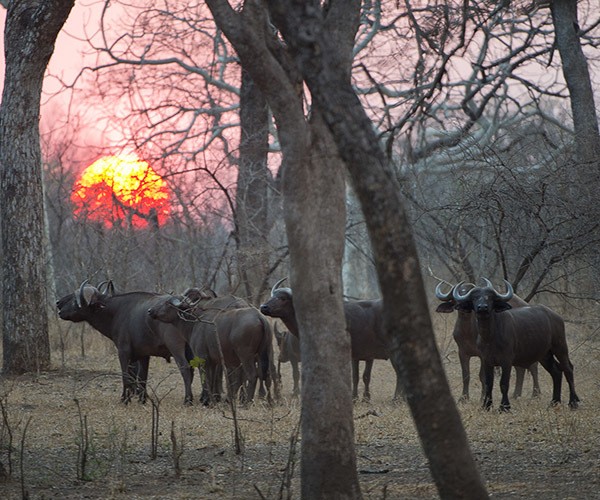 Kelly White is Director of the Malawi Travel Marketing Consortium. Malawi Travel Marketing Consortium aims to provide you with the best information to make Malawi your tourism destination.
If you would like to be a guest blogger on A Luxury Travel Blog in order to raise your profile, please contact us.
Kelly White is Director of the Malawi Travel Marketing Consortium. Malawi Travel Marketing Consortium aims to provide you with the best information to make Malawi your tourism destination.
If you would like to be a guest blogger on A Luxury Travel Blog in order to raise your profile, please contact us.Did you enjoy this article?
Receive similar content direct to your inbox.


More and more people are being influenced by conservation issues when choosing where to travel, they want to know that their tourist bucks are going to a good cause. Many travellers will be impressed by Malawi’s fantastic achievements. There’s good timing to this too, at the moment people have got the time to read things and take them in.
I’m surprised whenever reading stuff like this because it seems that America is woefully falling behind when it comes to conservation and protecting local and natural wildlife. I’m glad they take conservation seriously and it makes me want to visit there for that reason.
Thanks for your comments. Yes – it’s important for many tourists that they know that their ‘tourism dollar’ is well spent and helping conserve wildlife and environments. And that’s definitely the case in Malawi.
Those cheetah stats from Liwonde are really impressive. A jump from 7 to 18 over just 2 years suggests a bright feature for cheetahs. Perhaps for another post we could get an update on the black rhinos.
Thanks Grace. The rhinos are doing well, though their numbers grow slowly!
So nice to have a good news story coming from Africa. It’s a continent which has had more than its fair share of bad luck and bad news.
That’s true. But there is also plenty of positivity and this is a fantastic conservation success story!
I’ve read a lot about Malawi recently and much of it has been very favourable. I’ve never been to Africa, I’ve just inherited a little money too, so once we can all travel again I’d like to treat myself – and my husband too. I think Malawi would probably be the country I would choose.
Great! You won’t be disappointed. As well as the safaris, there is wonderful scenery, fantastic beaches and the most warm and welcoming people in the world!
It is great to know the story of how Malawi saved and took care of their wildlife so that it will thrive. With the rise of illegal hunters, poachers and whatnot, it’s very heartwarming to hear that the country’s wildlife is growing and protected. Through the years, extinctions have occured because of climate changes and people who hunt for profit. It really is sad that some people would risk the lives of innocent animals just to fill their pockets. I wouldn’t blame them honestly, those people did what they had to do just to have food on their table but I mean, there are other ways to make profit and killing animals is not the only option. I hope other countries might serve this as a reminder of the importance of keeping the wildlife alive.
I think we are all learning a lesson now to try to respect and not exploit wildlife.
Well done to African Parks and the partnership with Malawi’s government department for Parks & Wildlife! It’s heartbreaking thinking so much wildlife had been poached, it’s awful the situation gets to that point where so much is nearly wiped out entirely. The efforts involved here shouldn’t be under appreciated because it couldn’t have been easy. 500 elephants, all the cheetahs, the black rhinos, amazing. It’s good if tourism can now help to sustain this and support the good work going on rather than create any further problems or destruction. Let’s hope things continue on the right path now for a bright future there. Lovely to read a good news story right now, they seem in short supply lately!
Thanks Laura. Yes, it’s a great story and a remarkable initiative by African Parks. It’s real conservation success story and we hope it can continue.
I notice Malawi has reported very few coronavirus cases (less than 50) and only 3 deaths. Is this because the situation is largely under control there, or because there’s a lack of testing?
And what is the outlook for tourism for the remainder of 2020?
Thank you!
Malawi has relatively few cases as yet because it introduced restrictions very early, before any cases had been found in the country. For a country like Malawi this was a necessity because COVID-19 will put a pressure on its healthcare system that would quickly become too much for it, with catastrophic results. They are still trying hard to keep it under control. We can’t be sure what path it will take and when travel & tourism will be allowed again. We hope that it will be sooner rathe rather later because tourism is important economically, socially and environmentally.
I didn’t know you could see all of the Big 5 in Malawi! Hmmm… sounds like I need to do some more research!!! Had never really considered it before, but sounds fantastic!
It is! And, with so relatively few tourists, it has a level of unspoilt ‘exclusivity’ that is hard to find.
A friend of mine worked in Malawi, teaching for 3 years, and she’s always raving about the country. I think she regrets coming back to the UK.
As she’s gone about Malawi so much I thought that I ought to start thinking about a visit.
You definitely should! Everyone who visits falls in love with Malawi. Use the link in my bio above for more info.
I get the impression that conservation wise things have moved in the right direction since you posted this 3 years ago.
It’s hard to tell on the balance of news that I pick up here in the UK but I think that over the last few years there’s been more good news than bad news stories from Africa in the media.